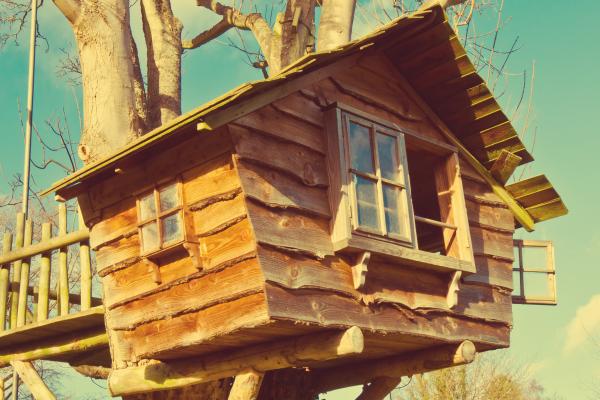My sister has one of those plastic playhouses in her backyard for her two boys. When she hosted a garage sale a few years ago, children accompanying their shopping parents would see the playhouse and join in.
I remember looking over at one point and seeing five children playing together. Different ages, different sexes, different races. All strangers. All playing together.
When they looked at each other, they saw a playmate.
In his autobiography, Nelson Mandela noted that children have an innate openness that tends to get closed off as they spend more time in the world.
“No one is born hating another person because of the colour of his skin, or his background, or his religion,” Mandela wrote in his autobiography. “People must learn to hate, and if they can learn to hate, they can be taught to love, for love comes more naturally to the human heart than its opposite.”
When we’re like those five children in the plastic playhouse, we haven‘t yet absorbed the hate and mistrust and judgment that’s around us. At that age, we still see life through fresh eyes. We’re filled with wonder at the small things and the enormous things — a lightning bug blinking, the Big Dipper shining. Life is grand and miraculous. We’re keenly aware that we have a lot to learn, which is why we ask a lot of questions. We know our very real limitations — small hands have trouble opening a big jar — and embrace our dependence upon others. We’re not reluctant to ask for help, or to help someone else.
We play with whoever walks into our yard.
As we get older, we lose many of those childlike qualities. We think we have all the answers and stop asking questions. We lose our ability to marvel at the small things and at the big things, too. We pull away from others. We reject our innate interdependence. We fight over who owns what and who gets to be in charge. We make rules for who should be allowed to play and how they can play.
In our childishness, we try to make the playhouse all our own.
Being childish is the flip side of being childlike. And anyone who has been around children understands that both traits are present in every little one. That’s how we are. Each of us begins life thinking that we are the center of the universe and should get what we want. We rage when we don‘t.
Ideally, we outgrow much of our childishness and maintain many of our childlike qualities. It’s a lifelong process. Some do it better than others. We see many 2-year-olds in adult bodies, brooding when they don’t get their way. Power and privilege tap into the childish mindset: If you don’t do as I wish or give me what I want, I will fire you or excommunicate you. I‘ll get you exiled from the playhouse.
Many passages in our religious texts suggest that if we want to enter into God’s playhouse, we have to do it with a childlike spirit and leave our childishness at the door. We have to accept everyone else as an equally beloved brother and sister. We have to work together. We have to share and trust. We have to take care of each other. We have to see ourselves as only one person under the big playhouse roof.
The plastic door is always open. So is the invitation.
We can respond with a childlike enthusiasm and enter and play. Or we can be childish and plop ourselves outside the door, brooding that others are being invited, too.
In any moment, we can choose to be childlike or childish.
Joe Kay is a professional writer living in the Midwest.
Image: Playhouse, mubus7 / Shutterstock.com
Got something to say about what you're reading? We value your feedback!
